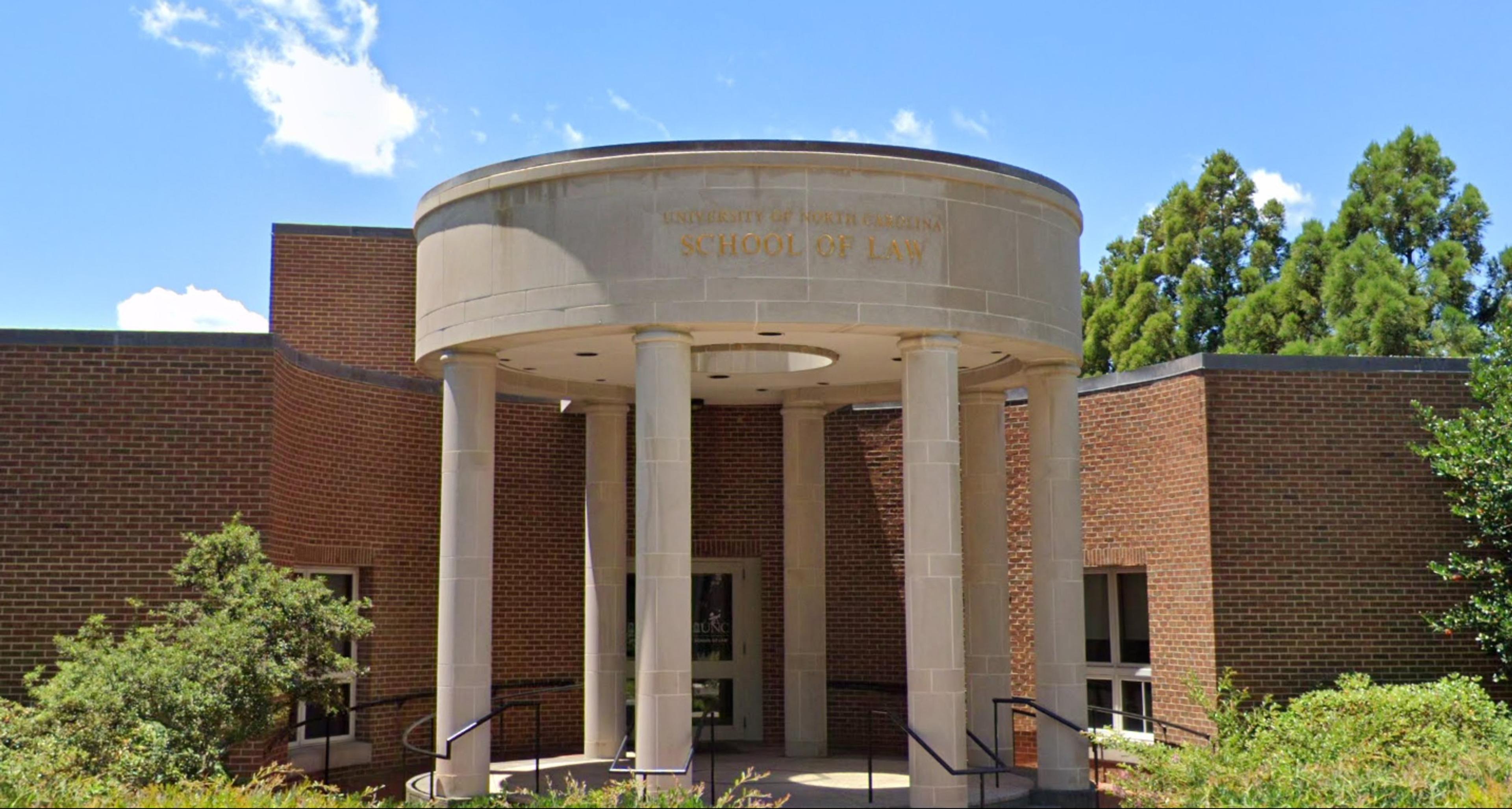How to Get Into FSU Law School (2024-2025)
Discover the comprehensive program and application process of Florida State University College of Law.
Posted March 6, 2025

Table of Contents
Free Event

Featuring Indrani S.
Law School App Office Hours with a Former Stanford AdCom Member
Starting Thursday, April 17
11:30 PM UTC · 45 minutes

Featuring Indrani S.
How Hard is It to Get Into Florida State University College of Law?
Florida State University College of Law (FSU Law) is recognized as one of the nation's top law schools. According to U.S. News & World Report (2024), FSU Law is ranked 48th nationally. The school maintains a competitive acceptance rate, which was 19.61% for the FSU Law School Class of 2025. Like most other law schools, FSU Law emphasizes practical experiences and unique legal education opportunities that prepare students for a variety of career paths.
Its location in Tallahassee, the state capital, offers access to resources that few other law schools can match, with the Florida Supreme Court and other key institutions just within the law school borders. This selectivity underscores FSU College of Law's commitment to enrolling highly qualified candidates.
Acceptance Rate Over Time
| Class of 2025 | Class of 2024 | Class of 2023 | Class of 2022 | Class of 2021 | |
|---|---|---|---|---|---|
| Applications Received | 2,335 | 3,290 | 2,487 | 2,372 | 1,798 |
| Offers of Admission | 458 | 695 | 487 | 533 | 534 |
| Enrolled 1Ls | 135 | 139 | 113 | 157 | 166 |
| Acceptance Rate | 19.61% | 21.12% | 19.58% | 22.47% | 29.70% |
| Yield | 29.48% | 20.00% | 23.20% | 29.46% | 31.09% |
Programs Offered by Florida State University College of Law
FSU Law offers a comprehensive range of programs designed to prepare FSU law students for diverse legal careers, providing the foundational knowledge and legal experience needed to excel in various fields:
- Juris Doctor (J.D.) - A rigorous program providing a strong foundation in various areas of law, with opportunities for specialization. Students gain unique insights into Florida State Law through direct exposure to state agencies, the Florida Legislature, and the judiciary.
- Master of Laws (LL.M.) - Advanced degrees in American Law for Foreign Lawyers, Business Law, and Environmental Law and Policy. Tax law is also a key area of focus for LL.M. students seeking expertise in taxation and corporate law.
- Joint Degrees - Opportunities to combine the J.D. with other graduate degrees, such as a Master's in Business Administration or Social Work, equipping students with versatile career skills.
- Certificate Programs - Specializations in areas like Environmental Law, International Law, and Business Law help students tailor their education to specific legal fields.
- Clinical Programs - Hands-on experience through clinics such as the Business Law Clinic and the Public Interest Law Center ensures that students graduate with practical legal experience.
- Career Services - FSU Law’s Career Services Office supports students in finding internships, clerkships, and employment opportunities, connecting them with leading legal employers and public service organizations.

Admissions Requirements — Who Gets Into Florida State University College of Law?
FSU Law seeks a diverse and talented student body with strong academic credentials, professional achievements, and personal accomplishments. The admissions committee evaluates applicants holistically, considering factors such as undergraduate GPA, LSAT scores, work experience, leadership roles, and community involvement.
FSU Law Admissions Stats: LSAT, GPA, & Class Profile
- Women: 59.5%
- Students of Color: 39%
- First-Generation Law Students: 75.7%
- Average Age: Ranges from 20 to 42
| 25th Percentile | 50th Percentile (Median) | 75th Percentile | |
| GPA | 3.67 | 3.85 | 3.93 |
| LSAT | 158 | 165 | 166 |
These figures reflect the most recent publicly available data for FSU Law's admissions. Please note that admissions statistics can vary annually. For the most current information, it's advisable to consult FSU Law's official admissions page or contact their admissions office directly.
What LSAT Score Do You Need for FSU Law?
To be competitive for admission to FSU Law, applicants should aim for an LSAT score within the following range:
- 25th Percentile: 158
- 50th Percentile (Median): 163
- 75th Percentile: 164
While a score below 158 is possible with a strong overall application, aiming for a score of 163 or higher enhances your chances.
Read: Top 30+ Free Resources for the LSAT
Bonus: How to Get Into FSU Law with a Low LSAT Score
- Highlight impactful work experience or unique accomplishments.
- Create a powerful personal statement that offsets lower test scores.
- Obtain strong letters of recommendation that attest to your abilities.
What GPA Do You Need for FSU Law?
A strong undergraduate GPA is crucial for admission:
- 25th Percentile: 3.56
- 50th Percentile (Median): 3.82
- 75th Percentile: 3.91
Applicants with a GPA below 3.56 should compensate with exceptional achievements in other areas of their application.
Bonus: How to Get Into FSU Law with a Low GPA
- Gain professional or leadership experience.
- Provide context for your GPA in an addendum.
- Showcase your academic improvement over time.

How to Apply to Florida State University College of Law
FSU Law Application Deadlines (2024 - 2025)
- Application Opening Date: September 1, 2024.
- Priority Deadline: March 15, 2025.
- Final Deadline: July 31, 2025.
- Decision Notifications: Applications are evaluated on a rolling basis from October through August. Priority consideration is given to applications submitted by the March 15 deadline. Applications completed after March 15 but by July 31 may not receive a timely decision.
FSU Law — Application Overview
- Application Fee: $30 (non-refundable), payable online through the Law School Admission Council (LSAC).
- Standardized Test Score: The LSAT is required; the GRE is accepted as an alternative.
- Transcripts: All undergraduate and graduate transcripts must be submitted through LSAC.
- Letters of Recommendation: A minimum of two letters are required, with up to four accepted.
- Resume: Applicants should highlight academic, professional, and extracurricular activities.
- Personal Statement: Applicants should discuss their background, goals, and reasons for choosing FSU Law.
- Optional Essays: Applicants may submit a diversity statement and addenda.
Read: Crafting a Winning Diversity Statement for Law School: Essential Tips
Eligibility
Applicants to Florida State University College of Law must hold a bachelor's degree from an accredited institution prior to enrollment. International students are required to demonstrate English proficiency, typically through standardized tests such as the TOEFL or IELTS, unless their undergraduate degree was earned in an English-speaking country.
Additionally, international applicants must meet U.S. visa requirements, including providing proof of adequate funding through the Certification of Financial Responsibility (CFR) form. FSU Law employs a holistic admissions process that evaluates academic records, test scores, leadership experiences, and contributions to diversity and public service. Furthermore, applicants must address character and fitness questions to meet the ethical standards required for admission to the bar.
Personal Statement
The personal statement is a critical component of the FSU Law application. It allows applicants to explain their motivations for pursuing a legal career and why Florida State University College of Law is their top choice. A compelling personal statement should connect your background, accomplishments, and career goals to FSU Law's values and programs.
Read: How to Write a Compelling Personal Statement for Florida State University College of Law
Letters of Recommendation
Letters of recommendation play a vital role in the FSU Law admissions process. These letters offer insights into an applicant’s academic and professional abilities, character, and potential as a law student. Applicants must submit at least two letters of recommendation, though up to four are allowed. Ideally, these letters should come from professors, advisors, or professional supervisors who know the applicant well. All letters must be submitted through the LSAC Letter of Recommendation Service to ensure security and efficiency.
Expert Tip: Provide your recommenders with a comprehensive outline of your achievements, goals, and specific points they should emphasize.
Read: How Many Letters of Recommendation for Law School: A Comprehensive Guide
Law School Resume
A well-structured resume is a key component of your FSU Law application. It should showcase your academic achievements, leadership roles, professional experience, and extracurricular involvement. Keep the following tips in mind:
- Limit the resume to 1–2 pages.
- Use bullet points for clarity.
- Highlight accomplishments that align with FSU Law's values and programs.
- Quantify achievements when possible (e.g., “Increased efficiency by 25% through improved processes”).
Expert Tip: Consider working with top law school admissions coaches to refine your resume and ensure it meets FSU Law's expectations.
Read: Crafting Your Law School Resume: Template and Tips
Different Types of Applicants — Requirements for FSU Law
FSU Law values diversity and welcomes applications from a variety of backgrounds, including reapplicants, transfer students, military veterans, and international students.
Reapplicants
Individuals reapplying to FSU Law should emphasize how they have enhanced their candidacy since their previous application. This may include new academic accomplishments, professional experiences, or personal developments.
Transfer Students
FSU Law accepts transfer students from ABA-accredited law schools who have completed their first year of study. To obtain a degree from FSU Law, a minimum of 45 semester hours of approved credit work must be completed at FSU. Since 88 credits are required to graduate, a maximum of 43 credit hours may be transferred from the prior law school. Transfer students must take, or have taken, all required courses and meet all graduation requirements.
Military Veterans
FSU Law provides dedicated support and resources for veterans, assisting them in transitioning into academic life and leveraging their unique leadership and problem-solving skills. While specific programs for veterans are not detailed in the provided sources, FSU's commitment to diversity and inclusion suggests a supportive environment for military veterans.
International Students
International applicants must demonstrate English proficiency. While specific requirements for the Juris Doctor (J.D.) program are not detailed, the university generally accepts tests such as the TOEFL or IELTS. For instance, the LL.M. program requires a minimum TOEFL score of 80 (internet-based) or an IELTS score of 6.5. It's advisable for J.D. applicants to meet or exceed these scores. Additionally, international students must meet U.S. visa requirements, including providing proof of adequate funding through the Certification of Financial Responsibility (CFR) form.
5 Expert Tips on How to Get Into FSU Law
- Craft a compelling narrative - Your personal statement is your opportunity to stand out. Use it to tell a story that ties your unique experiences, achievements, and aspirations to FSU Law’s mission and programs. For example, if you have a passion for public service, highlight how FSU Law’s proximity to the Florida Legislature and its emphasis on public interest law align with your goals. Share personal anecdotes or professional milestones that demonstrate your dedication to the legal field.
- Build strong relationships with recommenders - Letters of recommendation can significantly enhance your application by offering an external perspective on your abilities and character. Choose recommenders who know you well, such as professors, supervisors, or mentors, and who can write detailed, personalized endorsements. Provide them with a summary of your achievements and goals to help them craft impactful letters that highlight your strengths and potential.
- Optimize your LSAT/GRE preparation - A strong LSAT or GRE score is crucial for gaining admission to FSU Law. Research the school’s median scores (LSAT: 165) and aim to meet or exceed them. Create a study plan that focuses on improving your weaker areas, and take full-length practice tests under realistic conditions. Consider investing in a reputable test prep course or hiring a tutor to boost your performance.
- Showcase unique experiences - FSU Law values diversity and applicants who bring unique perspectives to its community. Use your application to highlight what sets you apart, whether it’s a professional achievement, volunteer work, leadership roles, or life experiences. For instance, if you’ve worked with underserved populations or have significant legal experience, emphasize how these experiences shape your aspirations and would contribute to the FSU Law community.
- Demonstrate a genuine interest in FSU Law - Admissions committees appreciate applicants who have thoroughly researched the school and are genuinely excited about attending. Mention specific programs, clinics, or faculty members that resonate with your career goals. For example, if you’re interested in tax law, discuss how FSU Law’s Business Law Clinic or proximity to the Florida Supreme Court provides unique opportunities for practical experience. Tailoring your application to FSU Law demonstrates enthusiasm and commitment.
The Bottom Line
- FSU Law is a top-tier law school with a competitive admissions process.
- Strong LSAT and GPA scores are essential, but a well-rounded application can compensate for weaker metrics.
- Take advantage of FSU Law’s diverse academic programs and clinical opportunities.
- Tailor your application to align with FSU Law’s mission and values.
Work with a top law school admissions coach to enhance your application and maximize your chances of success.
FAQs
Why is the FSU acceptance rate so low?
- FSU's acceptance rate sat at 62% in 2005 and 35% in 2020. It has since dropped to 25% following acceptances for the Class of 2028. This rise in selectivity likely comes from the university's increase in number of applicants and prestige.
Is FSU Law prestigious?
- FSU College of Law earns another high national ranking. For the second consecutive year, Florida State University College of Law has been tabbed as the nation's eighth-ranked law school for best value by the National Jurist's PreLaw magazine.
How much is FSU for international students?
- The tuition fee for international students seeking admission to Florida State University USA is USD 21,683 (INR 1,820,256). The tuition cost refers to the expense of attending classes at FSU depending on the course, program, and location that the students opt for.
How hard is it to get into FSU out-of-state?
- Gaining acceptance into FSU from out-of-state is far more difficult than as a resident of the Sunshine State. In fact, for entry into the Class of 2027, 36% of in-staters were successful compared to just 14% of non-residents.
Why is FSU so competitive?
- Firstly, FSU's increasing competitiveness can be attributed to its growing academic reputation. It offers a wide range of programs with a significant number of them ranked nationally. FSU's programs in business, engineering, and the sciences, in particular, draw high numbers of applicants










